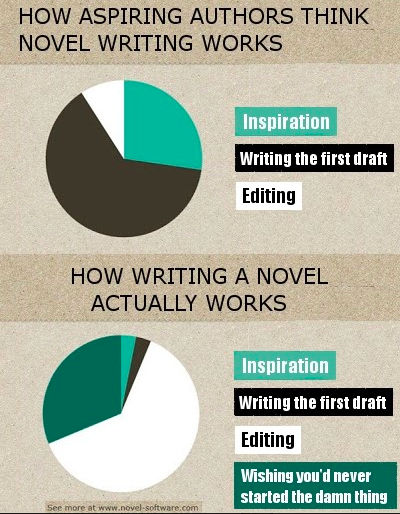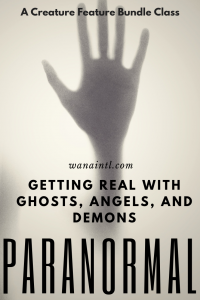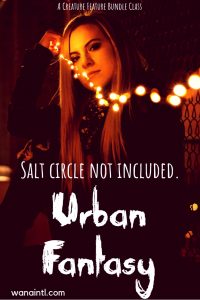
Perfect is the crystal meth of the soul. We know perfect is bad for us, that we should avoid it because it is impossible to attain. Yet, when we fail to remain vigilant, perfect’s promising high lures us in. Perfect whispers in our ear that we’re in total control and can stop any time we like. But that’s the lie, the hook. Oh, and once those hooks sink deep, the only way free from perfect is to bleed.
I know it seems like I’m being a tad dramatic, but anyone who dares to pursue anything remarkable must know the enemy and this one is a doozy. Why? Because this is the perfect enemy.
Why is perfect so deadly, especially for writers? Oh SO many angles, and we’ll explore those later.
A Perfect Mess

We’ve been talking a lot about the log-line lately and how we can use this one sentence to test a story idea before we’re 30,000 words deep in an unfixable mess.
Conversely, if we’re already tangled in a story we can’t wrangle under control, the log-line can pinpoint what specifically is going awry.
If the story is grand, but we failed to make the stakes high enough, then we can quickly and easily fix THAT. Instead of wasting time adding in more subplots or more detailed description, we know the MC needs to have more skin in the game.
The log-line also saves a lot of time rearranging deck chairs on the Titanic. If we’re missing a core story problem then we don’t have a novel, we have 50,000 or 80,000 or 100,000 words. Pretty big difference.
For those who’ve not yet read the post, the log-line formula is simple:
An Intriguing MC + Core Story Problem (Antagonist) + Active Goal + Stakes + Ticking Clock = Story
Perfect Characters

One of the single largest problems I encounter is that the MC is way too perfect. This is an easy mistake to make, especially for the newer writers.
When we’re first starting out, we lack confidence. We lack confidence because—despite what the world may believe—writing a GOOD novel is ridiculously difficult. There is a learning curve and writers need talent, training and time.
Many emerging authors are far more eager to give their MC a black belt in Judo than a black eye from a dirtbag spouse or lover. Characters have dream jobs, dream lives, and are fully self-actualized. Thus, all that remains is the oily residue known as whining. I want to get one thing straight before we go any further.
Fiction is about one thing and one thing only—PROBLEMS.
In order for an MC to be interesting, he or she must have some flaws. Juicy, interesting ones. That’s why I put the Intriguing MC as the first ingredient in our recipe for a spicy story. I will riff off a common enough example to demonstrate my point:
An immortal god with superpowers must understand his past in order to rescue the universe.
Even if we fixed all the other glaring problems with this log-line, can you spot IMMEDIATELY why this story is doomed?
If our MC is immortal, he isn’t ever risking his life. He can’t die. Also, he has superpowers so he’s already better than well-equipped to tackle even big problems. Can any of you intimately and personally relate to an immortal god with superpowers?
This all adds up to a steaming pile of WHO CARES?
Perfect Description

Since perfect characters come out of the brain bubble-wrap fully self-actualized, ideally prepared to take on any problem without breaking a sweat or a nail, this doesn’t leave much to work with. Perfect people are boring, and so is delving into their psyche.
Unlike seriously damaged characters—who have psychological warehouses crammed with skeletons and baggage—the PMC’s (Perfect MC’s) psyche is a spacious, orderly California Closet stocked solely with cruelty-free items.
FYI: This is bad news for a great story.
When we make characters fully evolved from the get-go, this defeats the entire purpose of story. Story is the crucible that will reveal the MC’s flaws, fire out his/her impurities and eventually forge the self-actualized hero.
If we’re starting our story with a California Closet, we really don’t have anywhere to go…unless….
We describe everything IN the California Closet, which obviously will be perfect *flips hair*.
It will also, by default, be extremely superficial because we don’t have anything else to work with. This is how we have so many MCs with emerald eyes (bet no one ever thought of THAT description) and flaming red hair (oh, another one I’ve never seen) or porcelain skin (*stabs self repeatedly*).
***Before anyone gets their knickers in a twist, I did this, too.
Give yourself permission to be NEW. This said, if we can walk into a fast food place and any random person off the street can come up with the same descriptions we did? THAT is a problem.
While descriptions of the PMC might fall flat, there’s “good” news. Since there’s no actual core story problem, we have plenty of room left over to gloriously describe…everything else.
This might be all right except description alone is not story. Many of us will sense this on some level, sense our reptile brains are nagging us that something NEEDS to happen after the MC goes shopping/has a meal/gets dressed.
I swear there is a drop-down menu somewhere in the zeitgeist.
Click to Insert: a) PMC gets party invitation, thus desperate need for new outfit and makeover b) Unexpected news that PMC is hosting a ball and requires new gown(s) c) Prophecy that war is looming and need to choose armor.
Perfect Pitfalls

Perfect characters lend themselves to page after page of description and a lot of nothing happening. Why? Because nothing CAN happen. Perfect has the hooks in and soon, short of alien abduction, we’re putting anything in the WIP just to say we’ve written SOMETHING.
There’s a reason this is happening…
If someone is rude, the PMC will handle with utmost diplomacy. Should a problem arise, our PMC will find the perfect spell instantly. And, since he or she is ridiculously powerful, talented, intelligent, the PMC can and will master whatever is necessary within a few pages.
But reptile brain is still there telling us we need to create PROBLEMS. Reptile brain has seen every season of Jerry Springer, worships Maury Povich, and believes that Dr. Phil is a total party pooper. Reptile brain is a huge fan of family holidays and always spoiling for drama.
Reptile brain, of course is right. Something DOES need to happen but, since we began with a perfect character, he or she can’t ever make bad decisions, which leaves generally two options.
Option One
The first option is the PMC has a lot of internal navel-gazing and angst which doesn’t make the PMC flawed, it only makes them unlikable and ungrateful. No one likes a whiner. And no one is going to feel sorry for a rich socialite who jets around the world and has looks, brains, and everyone’s unmitigated adoration waxing rhapsodic about how lonely she is.
*gagging sounds*
Our PMC often will also be more sensitive than a pre-menopausal mom caught in Christmas traffic with a mini-van full of hungry teenagers. The PMC completely overreacts to, well, pretty much everything.
And how we love THOSE people in life.
Or not.
Option Two
The second option is the PMC makes mistakes that render our PMC TDTL (Too Dumb to Live).
If I had a dollar for every perfect princess gifted with unrealized magical powers, the sole protector of her kingdom, the sole guardian of her people from certain doom…who for some seriously bizarre reason decides to go for a late night horseback ride.
Alone.
In the dark.
When she KNOWS her kingdom is on the verge of disaster, and that if anything BAD should happen to her, it’s game over for the kingdom.
Alas, despite fully understanding her hefty responsibility, she goes for a midnight ride. No guards or escort so she can do more…thinking. And, of course, she dismounts her favorite steed for a water break where she can conveniently gaze upon her spun gold/flaming red/black as night hair in her reflection.
All is magical and surreal (describe this part A LOT) until…
DUN DUN DUN!
She glances up and sees WHO?
*Refer To Dropdown Menu*
Our PMC is unarmed, unguarded and OF COURSE this would be the one time the a) evil wizard b) power-thirsty warlord c) demented rival ruler d) Other Bad Man So Long as He’s SUPER HOT would arrive.
OMG! I never saw that comi—yeah, saw that from a mile.
Why So Perfect?

As a reminder, I DID THIS TOO. I kid you not, in my first “novel,” I spent no less than six pages describing a flower market *face palm*. Again, give yourselves permission to be NEW. It’s wonderful to be new. It means you stepped out to do something grand. Just because we begin as amateurs, however, doesn’t mean we want to remain amateurs. Right?
Which is why I’m here to help shorten your learning curve 😉 .
Why many (newbie) stories fizzle flat has less to do with talent and more to do with insecurity and fear.
We’re prone to casting perfect characters because we’re not yet comfortable with the most valuable creative currency. CONFLICT.
When it comes to stories, handing out conflict is like tossing countless crisp hundred dollar bills into the air for everyone at the party #MakinItRain.
This is why authors who dole out the best (and the most) conflict have the largest entourage (Refer to George R.R. Martin, Tana French, Nora Roberts, etc.).
Is it okay to describe our characters and setting? Of course! That’s a ton of fun.
Is it okay to have hot MCs with superpowers? Sure it is! Ever heard of DC or Marvel? Certain genres even call for these over-the-top and larger-than-life characters.
All of this works…so long as the characters are imperfect.
Imperfect Makes Perfect (for Stories)

In order to be captivating, our MC needs to have baggage (more than carry-on, please). Issue them plenty of inner demons, a graveyard of skeletons in the closet, and decent-to-large helpings of weaknesses, addictions, and/or limitations.
Even the great comic book heroes are seriously messed up.
Batman is emotionally unavailable, filled with repressed anger, driven by false guilt, false shame and is prone to depression and masochism. He’s the great self-appointed martyr who believes he must sacrifice everything—love, family, Netflix—for the thankless Gotham City…even though no one ever asked him to.
***Hmmm wait a sec. HOLY CRAP! Batman is my NANA?
Feel free to give your MC some fantastical power…so long as there’s a cost (a BIG one preferably).
For example:
In the HBO series Carnivale, the Oklahoma farm boy Ben Hawkins has the ability to heal, but there’s a catch.
When Ben gives life he must also take life. The energy to heal comes from somewhere, and never from a source he can predict. Someone or something else must pay the price for Ben’s “gift.” In essence, Ben is stealing a life he has no real right to give away. Talk about some inner conflict and outer drama.
Do Some Damage!
And now that we’ve explored all this, we can return to our original “log-line” and fix at least PART of what is wrong aside from a crap-ton of redundancies:
An immortal god with superpowers must understand his past in order to rescue the known universe.
How about…?
When an egomaniacal god recklessly breaks an old and tremulous truce, thus igniting a needless war, he is stripped of his powers and banished to the mortal realm on Earth where…. (Refer to Thor).
See how it was perfectly fine to cast an immortal god with superpowers? It works, so long as we (Author God) take them away 😉 .
Weak is Strong

In the beginning, I mentioned the allure of perfect. It’s natural to be afraid of giving characters flaws because we still need training, practice and confidence. Perfect attracts us because it’s easy to write.
It doesn’t take tremendous skill to write a 2,000 word “scene” where the MC shops for a new designer dress and giggles with her best girlfriends. Anyone semi-literate with half an imagination can write this sort of a “scene” where the only problems might be typos or grammar mistakes.
On the other hand, it takes far more skill to write a scene where the MC shops for a new dress and giggles with her best girlfriends…but it’s all a ruse. She’s living in a house of cards about to blow away.
On the surface she’s normal. Inside? She’s on the edge of a nervous breakdown. She doesn’t WANT to be at Neiman Marcus, but she has to keep up appearances (WHY?). The MC is terrified (WHY?) because she lost her sweet high-paying job a month ago and her severance pay has run out (WHY IS SHE KEEPING THIS A SECRET?).
She’s sweating bullets hoping her credit card isn’t declined because if it is, she will be nothing and no one. She will cease to be the only person she knows how to be—The Gal Who Has Everything.
This is a taller order. Our MC has to maintain the facade, but the “friends” will sense something is off. She’s edgy, jumpy and feels ill about lying. Why is she lying? What does this say about HER? None of her “friends” are aware of her dire situation, so what does that say about THEM?
Notice how the first “scene” is information dump. There are no QUESTIONS to keep us (readers) turning pages. The second example, however, is bursting with tension.
And we didn’t even need to travel to her childhood to find it 😉 .
In the End
Writing fabulous books readers love takes skill. This is a tough gig, albeit a fun one. Regardless of genre, messes make magic. We want characters we can relate to, and don’t know about y’all, but I am far from perfect. Questions hook readers because we don’t like loose ends. We’re a nosey species that longs to know “Why?” and “What happened?” and if whatever happened can be resolved.
Pretty prose doesn’t make us turn pages, PROBLEMS do. So go make a mess, so your MC can grow up and clean the mess up. Your readers will thank you.
What Are Your Thoughts?
I love hearing from you! Questions? Do you feel liberated to go mess up some lives now? It’s okay. Your MCs can fix them by the end (which is kind of the point, LOL).
What do you WIN? For the month of OCTOBER, for everyone who leaves a comment, I will put your name in a hat. If you comment and link back to my blog on your blog, you get your name in the hat twice. What do you win? The unvarnished truth from yours truly. I will pick a winner once a month and it will be a critique of the first 20 pages of your novel, or your query letter, or your synopsis (5 pages or less).
Upcoming Classes for OCTOBER!
SPOOKTOBER!

PARANORMAL: GETTING REAL WITH GHOSTS, ANGELS, AND DEMONS
Instructor: Cait Reynolds
Price: $55.00 USD
Where: W.A.N.A. Digital Classroom
When: Friday, October 12, 2018. 7:00 p.m. – 9:00 p.m. EST
Ever get the feeling that a paranormal romance WIP is turning out more reality ghost-hunting television than Demi Moore pottery party?
How about when a demon ends up sounding more like a goth teenager than an all-powerful agent of everlasting darkness? Or, when angels get confused as to whether they are supposed to be Nicholas Cage in ‘National Treasure’ or ‘City of Angels’?
Let’s not forget the time when asking friends and fellow writers for advice turned into a 172-comment trolltastic thread debating minutiae of scripture and ended with all our ‘Team Long Island Medium’ friends blocking our ‘Team John Edward’ friends.
All of this comes from a fundamental paradox in writing about the paranormal:
We are trying to define and describe the unexplained and unexplainable for the reader.
Well, get your EMF ghost meters and EVP recorders ready, because in this class, we’re going to turn off the lights and turn on the night vision cams…
This class will cover:
- Ghostbusters: five questions every writer needs to answer when writing about the living-impaired;
- Chills, chills, chills: writing the spooky stuff so readers feel like they’re really there;
- Flirting with danger: walking the fine line between the mysterious angelic stranger and creepy stalker demon (hint – one of them stalks your Facebook);
- The demon is in the details: from scripture to spirit boxes, how to get your ‘facts’ right, avoid trolls, and find that unique angle that will make your story stand out.
A recording of this class is also included with purchase.

URBAN FANTASY: SALT CIRCLE NOT INCLUDED
Instructor: Cait Reynolds
Price: $55.00 USD
Where: W.A.N.A. Digital Classroom
When: Friday, October 19, 2018. 7:00 p.m. – 9:00 p.m. EST
Be honest. How many voodoo dolls have you mutilated in your quest to become the next Laurell K. Hamilton or Sherrilyn Kenyon?
- 0-9: You’re probably too virtuous to ever get published.
- 10-19: Equivalent of the New Year’s resolution of voodoo…fizzles in week 2.
- 20-29: You’ve won NaNoWriMo once or twice and wear lucky writing socks.
- 30+: Now, we’re talking.
In all seriousness, urban fantasy has emerged as one of the strongest and most competitive categories in publishing, building on the momentum of legends like Anne Rice and expanding to embrace all kinds of sub-genres such as YA, satire, and romance.
But for all its badass convention-breaking, urban fantasy also a genre boobytrapped with the worst pitfalls of all the genres it borrows from.
If we’re not overdoing the Mickey Spillane-esque hard-boiled grit, we’re confusing which supernatural creature has which power. Or, we’re creating characters that are so wrapped up in their love lives with <insert hot supernatural guys here>, they almost miss the climactic battle between good and evil happening a couple blocks over.
Fear not! Strap on your vampire-hunting gear, grab your wolfsbane gris-gris, and don’t forget to bring your sarcastic sidekick to this class where I will help you navigate the mean streets and treacherous back alleys of urban fantasy!
A recording of this class is also included with purchase.
BLOODY BEASTS: VAMPIRES, WEREWOLVES, AND OTHER BEASTIE BESTIES
Instructor: Cait Reynolds
Price: $55.00 USD
Where: W.A.N.A. Digital Classroom
When: Friday, October 26, 2018. 7:00 p.m. – 9:00 p.m. EST
Every few years, publishing declares, “Vampires are dead!” and technically, this is correct. They are undead. You can’t keep a good vampire down. Or a good werewolf. (Down, boy!)
Like a dog with a bone, readers keep coming back to stories about vampires, werewolves, and other creatures because there is something irresistibly compelling about the danger of the ‘other’ that makes us question what it means to be human. Plus, vampires and werewolves can be totally hot, amiright?
However, trite tropes and careless creature creation can raise a reader’s hackles faster than a bad batch of AB negative. Okay, okay, I’ll stop with the awful mixed metaphors and puns. Still, a story that doesn’t offer anything new or compelling will suck the life out of a reader’s interest faster than day-old vampire…yeah, I know…bad joke…sorrynotsorry!
This is going to be a super fun class with a lot of juicy stuff to sink your teeth into…can’t-stop-won’t-stop….
This class will cover:
- Only human: how to walk the fine line between immortal angst and everyday relatability and create characters so cold, they burn, baby!
- Sparkle, shmarkle: picking through the mystery, history, and science of vampirism to create your own believable and betwitching bloodsuckers;
- That time of the month: from caricature to cryptozoology, what writers get right…and wrong…about werewolves and wolf shifters;
- Mortal problems: Do vampires pay taxes? If a hunter shoots a werewolf, is it involuntary manslaughter? ignoring these details can deal a fatal blow to a reader’s suspension of disbelief.
A recording of this class is also included with purchase.
THE CREATURE FEATURE CLASS BUNDLE

Instructor: Cait Reynolds
Price: $110.00 USD (It’s LITERALLY one class FREE!)
Where: W.A.N.A. Digital Classroom
When: (see below)
REGISTER HERE!
- FRIDAY, OCTOBER 12 – Paranormal: Getting Real with Ghosts, Angels, and Demons
- FRIDAY, OCTOBER 19 – Urban Fantasy: Salt Circle not Included
- FRIDAY, OCTOBER 26 – Bloody Beasts: Vampires, Werewolves, and Other Beastie Besties
Recordings of all three classes is also included with purchase.
About the Instructor:
 Cait Reynolds is a USA Today Bestselling Author and lives in Boston with her husband and neurotic dog. She discovered her passion for writing early and has bugged her family and friends with it ever since. She likes history, science, Jack Daniels, jewelry, pasta, and solitude. Not all at the same time. When she isn’t enjoying the rooftop deck that brings her closer to the stars, she writes.
Cait Reynolds is a USA Today Bestselling Author and lives in Boston with her husband and neurotic dog. She discovered her passion for writing early and has bugged her family and friends with it ever since. She likes history, science, Jack Daniels, jewelry, pasta, and solitude. Not all at the same time. When she isn’t enjoying the rooftop deck that brings her closer to the stars, she writes.









17 comments
3 pings
Skip to comment form
I’m guilty of crunching down on that crack. You’d think I was eating pop rocks or something! It’s pretty typical that my characters aren’t flawed enough and my conflicts aren’t quite strong enough. They always have to be bumped up during revisions. That tasty perfection crack also kills me while I’m writing. It’s hard not to edit as I go. I’m trying to get messy, I swear!
Kristen – I love you, but I feel compelled to ask: why is the lead picture of some blonde chick with her breast semi-revealed? Why is there another picture with another ‘pretty’ woman in an obscuring hat, yet lips are pursed?
Maybe it’s just me or how the vibes are today — who knows? I got the email, which shows the title and the lead image and immediately thought: wtf? Perfect and a picture of some male eye-candy?
Many other things represent perfection – a diamond of perfect clarity, a glass of water where the water is the perfect chemical balance, blah blah…
My apologies for bringing this up, but it almost pissed me off — and now I have to chill out before I can read what I know will be some excellent, insightful guidance, because I don’t want an image to affect how I assimilate that information.
I may pay for speaking my mind, but I hope you’ll understand and forgive my bluntness.
Thank you for your continuing dedication to all writers and your invaluable sharing over the years, and for the years to come.
Author
Because I need stronger reading glasses *FACE PALM*. Honestly, I just saw a blonde on the beach and was all “Sure, she has perfect hair and outfit sitting in waves. Erm…okay.” Yeah I hate those kind of pics too so I changed it. Great catch and my apologies. Honestly, it’s just my vision is terrible. I chose a perfect PERSON because that is what the post is talking about today. The uber perfect MC, so I wanted the prototypical “perfect” human to make the point.
Author
And also romance is the juggernaut that drives the publishing industry. Romance is 70% of all book sales. Alas, this is also where when I do edits I tend to find all the super perfect, beautiful, 4% body fat, Mensa IQ characters that are as deep as a puddle. So, like I said, sure the diamond might also represent perfect but the metaphor too far away from the point I am making, which is to make the characters more flawed for a better story. Perfect seriously overrated and makes for some miserable plotting.
Thanks, Kristen — it’s all good. A gut reaction, without the qualifier of the great material that followed. And, I know you always have a connection between pics and text, which is why I’m usually cleaning spit off my screen and keyboard… :o)
No apologies necessary – I’m prickly lately (political rash & nausea), so I’ve got the brain lotion out.
Your intent is noted and utterly acceptable…thanks again
Yeah, loglines were totally unheard of until you mentioned them. In your class, when you asked for mine, I was honestly had no idea what you were asking for. Haha. But I spent an entire day writing loglines out, finding the best story. Also, do the stakes need to be laid out before the first plot point?
Author
Not necessarily spelled out but they do need to be introduced/hinted at. Watch movies and you will see the shadow of them comes fairly early. Same in books.
Great blog piece. I wish I had read it 9.5 years ago. It would have saved me a lot of time & heartburn. That’s when I wrote my first screenplay, a romantic-comedy. I completed my first draft in ~5 weeks. My wife read it and said she liked it and I fluffed up like a peacock. Wow, this was easy. I’m a screenwriter.
Shortly afterwards, I emailed the script to a friend asking for comments. That’s when reality slapped me in the face. She brusquely panned it saying the characters were too nice, too polite, especially the teenagers. She also said the comedic scenes were tepid, drawing chuckles, not laughs. She said other things, but you get the point.
After I got over the shock and despair I started the editing process. A year later I completed my 8/9th draft. It was no longer a ROM-COM. It had morphed into a family drama. I shelved it and moved on to a new project. I’m currently working on a supernatural/thriller. I have yet to complete a full draft. I’m dealing with a different “perfection” issue – endless rewrites. LOL
I’m a retired systems engineering geek (NASA, NOAA, DOD). I wrote hundreds of technical, operations, business development, and marketing documents/plans. I was good at it. I didn’t suffer from writer’s block issues and could chunk out my docs in short order. My transition to fiction writing has been WAY harder than I expected. I haven’t given up yet, but I’ve considered it more than occasionally in the past couple of years.
I very much enjoy reading your blog pieces and love your style of wit and humor. For now, I will keep reading and writing. 🙂
I’ve been going back and forth about a manuscript–wondering if it was doing what I thought it needed to do. Basically, did it work. I just wrote a logline and yup, it works. Thank you for that, Kristen–and so much more.
Great post, Kristen. Although I wonder where you took the reference to “emerald eyes.” I used that description in my second paranormal mystery novel, By Your Side (which you have), as one of the ways in which a male character describes a woman in the story.
Since he’s a suave, charming criminal currently dealing in Nazi stolen art (and in his past has trafficked in other expensive items), I thought it would be funny and appropriate if, from his POV, he sometimes describes people and things in terms of valuable items because that’s how he thinks. He is not a terribly deep person himself (simply greedy, selfish, and narcissistic) so he would not describe another character with much depth. That was intentional when I wrote him.
In my other stories–and with other characters–I have used far more eloquent and inventive phrasing in my descriptions, and since all of my books get four and five star reviews, it seems the readers didn’t mind my use of “emerald eyes” that one time. 🙂
I think the way a POV character describes another in a story is based on that POV character’s background, intelligence, personality, experiences, etc. For example, an overworked single mom, a cop, an astrophysics professor, and a homeless man all looking at the same woman walking down the street might use different words to describe her–some with more depth or eloquence than the others. Just my two cents. Cheers!
Author
I have no issue with emerald eyes. I have issue when that is the deepest we go regarding character description. It’s a challenge to go deeper than JUST the surface. Sure a character can have raven hair (I have one in a story) but the surface descriptors can only do so much and they’re something anyone literate could write. OTHER qualifiers are not so easy. “He stared into her cornflower blue eyes” is okay but “He stared into her cornflower blue eyes, a color so innocent and fathoms deep. Only someone who knew her, really knew her spotted the one thing missing from behind her childlike gaze. A soul.”
Granted I just riffed this off. But now the color of cornflower is used as a way of juxtaposing evil. We aren’t simply stopping at a police sketch artist description. There is inherent meaning in what adjectives we select.
What vexes me is when there is ONLY surface description: golden hair, honey skin, emerald eyes. Um, ok. So now what?
I’ve read your writing Phil (own two of your books) and your writing is AWESOME and I wouldn’t slot you into what makes my left eye twitch at all, LOL. Thanks for the lovely comment, though.
Thanks for the compliment on my writing, Kristen! That truly means a lot to me. You made my day. 🙂 Hope to see you at another conference in the near future…
Your blogs on loglines have helped me a lot and have kept me up at night as I struggle to come up with the logline for the novel I’m working on. I think I’ve got it by now and it’ll help me finish the book.
Thanks.
Perfectionism is a huge waste of time. The only time it pays is in line editing. Slight line errors do distract the reader. That pie chart was interesting but I don’t fit. Whatever we are good at takes less time. For me, I plot in a week, write the book in 8 weeks or less. I seldom need to rewrite other than add a cog or cut one (The plus side of plotting);that takes a week. I suck at line editing so that takes 4 weeks before I send it to a pro proof reader.Two days to fix the mistakes I could not see and I’m done. I leave the perfectionism of line editing to someone else because I’m not good at it but it needs to be right.
I got caught up in the perfection bit too, trying to make every single chapter perfect, reduce the wird count, fix those commas, too many paragraphs, not enough paragraps, a speed up the pace, dlow it down, cross that t, dot that I.. Listen to every single critic and chane that first chapter 500 times while never listening to myself or god forbid what that story and characters needed!
I’m glad before making any big changes I saved the chapters I was revisiong in a word file, it’s saved me huge headakes. xP
It’s taken a while but finally learned that just because one or three people say one thing doesn’t mean it’s true. You know the saying : If several people agree on a problem then it’s probably true? Well, not always. In online critique/writing sites where critics can read past critiques can make this dangerous by falling into group think due to them ot bothering to come up with a fresh critique. They instead just take parts of an old critique and reword it.
So, for this, this has started to happen on wattpad in the past couple of years. Critique cricle us still good as cridics aren’t able to see past critiques until they finish theirs making the saying: If several people agree on a problem then it’s probably true? – still work.
Perfection and super powers, ha-ha I remember in my first few drafts how OP the main mc was she couldn’t be touched and that made the book grind to a halt as it caused a problem with moving getting towards the ending I had at the time. How could she cristalize her soul if she can’t get hurt? (Don’t ask, I git rid of that real quick, lol.)
Now I’m wondering if the main antoganist is too OP. Well, one more thing to fix.
I’ve read lots of books on wattpad and other writing sites and the only thing that annoys me more then reading a perfect teenager going to a perfect school where everyone has to comment on how pretty she or he is a damn alarm clock going off. GERR.
Just get on with the story already.
I get busy and always bullet your blog. Eventually, I get back to it. Today was the day. Saturday morning: the animals are fed, my grandson is away hunting, dishes are partially done, one load of piled laundry is in the machine, the house is quiet, and I can think at last. Perhaps, you can understand why “perfect” seems appealing. So after reading your article, I am going back to the beginning and muss up my mc’s hair, give him a pimple or two, or maybe even a smaller (ahem. What’s appropriate here? Can I say dick or should I say male member?) I always read your blog, but not in order.
Lol. I had the opposite problem making my character so messed up that you’d sware she was on a drunken rage spree fighting everyone she met and screaming the whole time. (In caps yet.) with lots of exclamation marks to really “show” the yelling. xD *cough*
Writing is therapy?
[…] is finished, there are many things to consider when sitting down to revise. Kristen Lamb explains how “perfect” destroys perfectly good stories, Jordan Peters encourages writers to avoid information overload like the plague, and Janice Hardy […]
[…] actually isn’t quite as related to what Kristen was talking about in this post. I’m talking about my inner intellectual demon that MUST BE RIGHT AT ALL TIMES. If a blog […]
[…] know I’ve mentioned this particular bugaboo in a recent post. We are authors. Authors are artists. This means we should be able to do a better job at […]